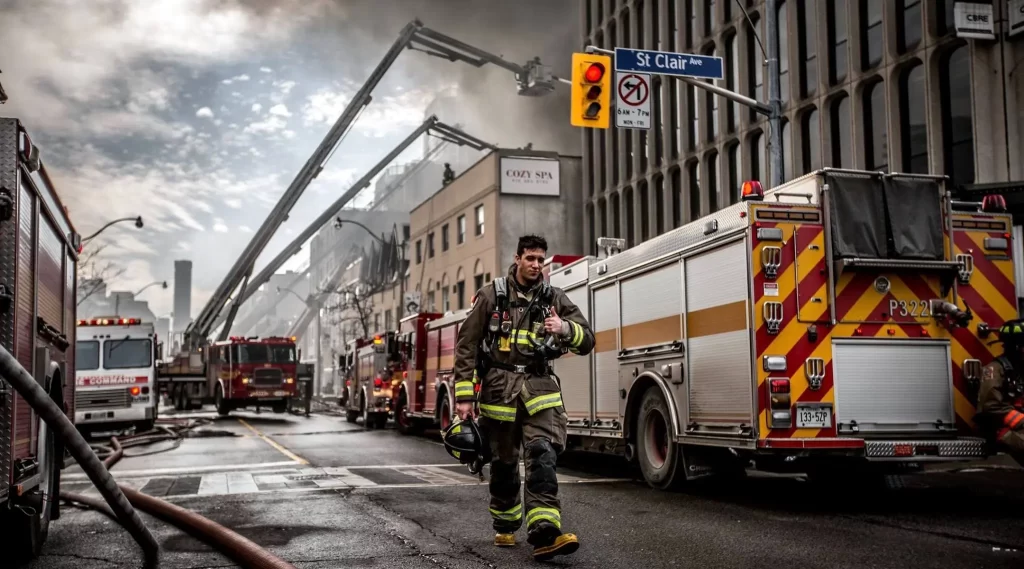What is Resilience?
Resilience is a concept with a wide array of definitions, but most would probably agree that it fundamentally revolves around having the right perspective. But what does “the right perspective” mean? Life histories or predispositions can vary slightly or significantly between one First Responder or Veteran and another, but the difference is by degree and not fundamental.

The way we perceive events shapes our understanding, and consequently our reactions and responses to them. We are meaning-making animals and spend our lifetime attempting to understand events, others, and ultimately ourselves. How then could personal growth be possible amid the compounding injuries to body and mind while trying to remain sane in insane places?
Locus of Control
How much do you believe the direction you travel in life is controlled by you, or factors external to you? Do we see our paths as dictated by our actions, or merely swayed by external forces, chance, or fate? Some may lean towards believing that their efforts are futile, maybe needing to rely on rituals for good luck, while others might overestimate their influence, feeling responsible for every outcome.
Both extremes can be detrimental to our mental health. If we perceive ourselves as powerless, we risk losing motivation and abandoning even the most modest goals we set. This helplessness can amplify feelings of hopelessness about the future. Alternatively, an inflated sense of control can create an overwhelming sense of guilt, and likely an exaggerate perceptions of failure.
For example, after a traumatic death, a Member or Veteran may struggle with thoughts about the unfairness or apparent meaninglessness of life. Perhaps they may even question the value of planning or putting effort forward. Alternatively, another might exaggerate the impact of a decision they made, or failed to make, and become paralyzed by guilt.
Focusing in the Here & Now
While we cannot always dictate the situations we find ourselves in, we must dictate the decisions we make. Although the degree of influence we have over a situation varies, personal control over how we respond to our reactions should not. Many of us do not live to our full potential because our mindset is not present in the here and now. Instead, we may be distracted by guilt or regret from the past, or anxiety and pessimism about the future.
Many of us do not live to our full potential because our mindset is not present in the here and now.
When we believe we cannot cope, a sense of hopelessness may prevent us from making the decisions necessary to pull ourselves out of these stuck points. However, if we can shift our focused away from ceaseless thoughts about past failures and future uncertainties, we can pivot our attention to the present and begin to move forward with intent.
Personal Growth & Action
To navigate a constant evolution of change, we must combine careful interpretations with the ability to improvise – always adjusting these to the circumstances of reality. Resilience is not a ceaseless state of emotional well-being. Resilience is a direction we follow in life that requires a constant development of personal growth. It demands not only reflection and orientation, but movement towards a purpose.
Resilience is a direction we follow in life that requires a constant development of personal growth. It demands not only reflection and orientation, but movement towards a purpose.
Resiliency & Relationships
We often construct unreasonable expectation of what resilience and mental hardiness looks like. Frequently, we underestimate the critical role that relationships play in resilience for First Responders and Veterans. We must recognize that we are not only meaning-making animals but inherently social creatures. Although self-determination and self-reliance are often synonymous with resilience, we cannot always do it alone.
Supportive relationships outside of service, or those horizontally between peers and vertically with a chain of command are critical components to health. These may offer alternative perspectives, coping strategies, and remind us that we are not along. Having a strong sense of belonging among peers can be particularly important. Literally a frontline support, those in uniform beside us, or who have served with us before our release, can offer a unique ability to understand and discuss our challenges to help us continue moving forward.
Redefining Resilience
Resilience necessitates the recognition of reality not blinded by false optimism. It involves cultivating a perspective that allows us to find meaning and mental maturity through our experiences. Given many of the risks associated with service as a First Responder, there is deep importance in feeling a shared sense of belonging to something greater than these risks. Likewise for us as Veterans, we too must feel connected to a community we can trust.
Resilience necessitates the recognition of reality not blinded by false optimism.
Our understanding of resilience must include the idea that asking for help and relying on others is not a sign of weakness, but rather essential to survival. Whatever our tolerance to pain, developing a sense of unity helps build the confidence needed to face injuries inherent in service or those after release.
Remember, our experiences are not only episodes in our life but represent pieces of a history constantly being constructed by experiences and our evaluations and re-evaluations of them. Brothers and sisters, to stay well we must remember we were not meant to serve alone, so should not suffer alone. If help from a professional is something you believe might help, stay in comms and send me a message downrange.